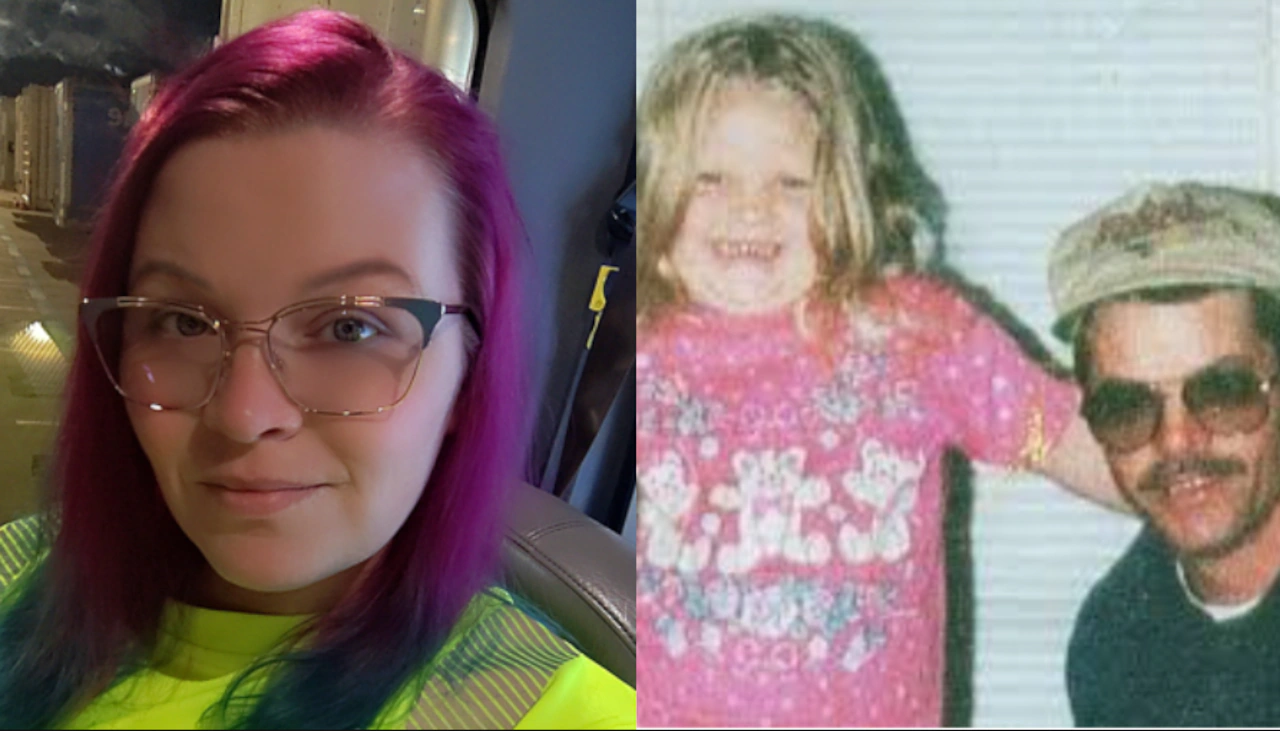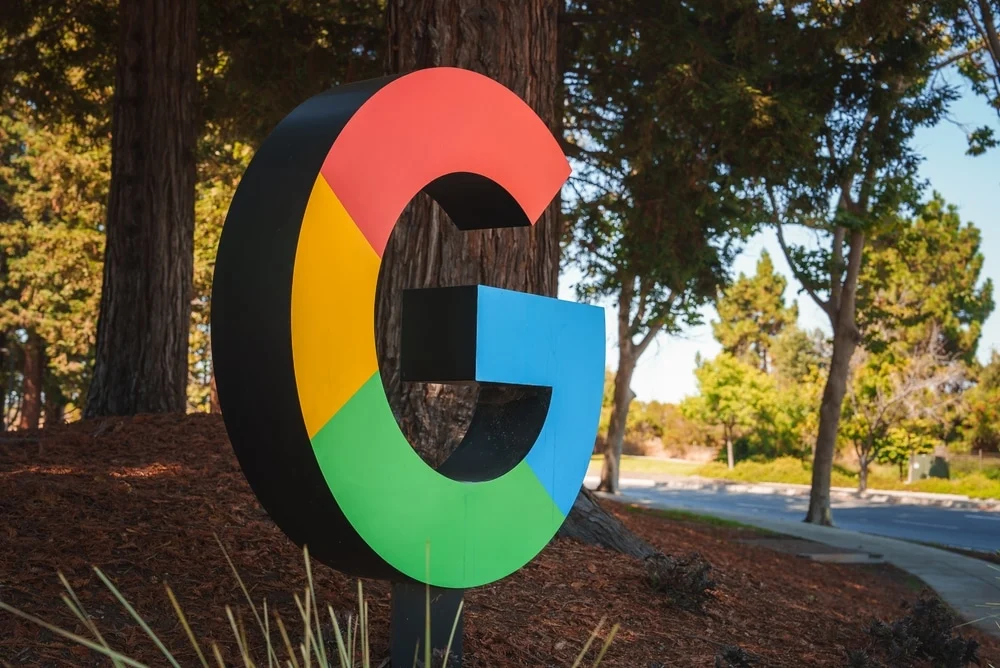Copyright AL.com

Some of Deborah Brashers’ best memories are the two years she lived with her father in Arkansas. Along with her mother and her half twin sisters, Deborah’s father would lead family outings -- canoeing, swimming, camping and bonfires. “For Valentine’s Day one year, he went and bought us all single red roses – me and my two sisters – and got vases and walked into the school into our classrooms and brought them to us,” said Deborah, now a wife and mother in Huntsville. “He was the all-American father.” The family’s life was by no means idyllic or extravagant, but in Deborah’s mind it was a “really good childhood.” Those memories were shattered in 2018 when Deborah’s father, Robert Eugene Brashers, was identified as a serial rapist and killer. The heartbreaking discovery came nearly 20 years after he killed himself during a 1999 police standoff in a Super 8 motel room in Missouri as she stood nearby. Less than two months ago, Deborah and the world learned that Brashers was responsible for the high-profile, long-unsolved Dec. 6, 1991 “I Can’t Believe It’s Yogurt” murder case in Austin, Texas. Amy Ayers, 13; Eliza Thomas, 17; and sisters Jennifer and Sarah Harbison, ages 17 and 15, were gagged and had their hands tied with underwear. Each shot in the head, their bodies were found by firefighters battling the blaze Brashers set after the murders. “Until 2018, I held my father ... on a pedestal,” Deborah said. “He was the greatest man that we had ever met.” “The moment I found out, it made my whole life up until that point a lie,” she said. “I’m still to this day trying figure out exactly where my life is.” ‘DNA was primitive’ Robert Eugene Brashers, through DNA and ballistics, has now been linked to eight murders in Texas, Missouri, South Carolina, Tennessee and Kentucky. He spent much of his young life in Alabama, attending Butler High School in Huntsville and working as a bartending at T.P. Crockmier’s in Mobile before joining the Army and then the Navy. Although Brashers has not been linked to any unsolved crimes in Alabama, family and investigators believe there are more victims out there. “Some investigators think he wouldn’t do crimes in the places he lived, but he broke into that woman’s house (near their home in Arkansas) with a kill kit on him,” Deborah said. “There has to be more,” she said. “He was in Alabama and lived here for way too long.” On Sept. 29, 2025, officials in Austin held a press conference to announce Brashers had been identified in the yogurt shop murders. Eliza and Jennifer worked at the shop in an Austin strip mall. Sarah and her friend Amy were visiting them that night. Austin police Det. Dan Jackson at the September press conference said Sarah, Eliza and Jennifer’s bodies were together in the back of the store, and Amy was closer to the front. The four girls were found nude. All four had been shot in the head with a .22 pistol, and Amy had also been shot with a .380 pistol. There was evidence, Jackson said, of sexual assault. The only physical evidence recovered was a single spent .380 shell casing from a floor drain, and swabs taken from the young victims. “This was 1991 and DNA technology was primitive at best,” Jackson said. Those swabs were retained for 34 years. In 1999, four young men were charged in the murders after multiple confessions. Two went to trial and were convicted – one was sentenced to death. There was no physical evidence linking them to the yogurt shop murders. Eventually they were exonerated. One of the four original suspects was shot to death by Austin police in 2010 after stabbing an officer during a traffic stop, police said. The investigation into the yogurt shop murders would continue, and stall, for years. In the meantime, DNA technology soared and Brashers in 2018 was ultimately identified as the suspect in multiple rapes and murders in multiple states. As of now, he has been tied to these cases: April 4, 1990: 28-year-old Genevieve “Jenny” Zitricki, was found beaten and strangled to death in the bathtub of her South Carolina apartment. March 11, 1997: A 14-year-old girl was raped in Memphis. She and four other females were also bound. March 28, 1998: In Missouri, 38-year-old Sherri Scherer and her 12-year-old daughter, Megan, were found murdered. Megan was also raped. March 28, 1998: In Dyersburg, Tenn., approximately two hours after the Scherer murders, Brashers broke into another home and shot a 25-year-old woman who survived. Ballistics testing revealed the same gun was used at both crime scenes on March 28, 1998. 1998: The .380 cartridge found at the yogurt shop came back as a match to the weapon used in an unsolved murder in Kentucky. The case had similarities to the yogurt shop murder, Austin police said. Brashers used a .380 caliber handgun in his suicide. Additional details of the Kentucky case have not been released. Brashers was also convicted in 1986 of attempted murder of a woman in Florida, and he was arrested in 1998 of a home invasion of a woman in Paragould, Arkansas. His extensive criminal history also included impersonating a police and unlawful possession of a weapon. At one point, he faked his death by publishing a false obituary in South Carolina. He had been in and out of prison before he died at the age of 40. ‘Something bad would happen’ Deborah discovered Brashers was her father when she was 5 years old. Up until then, she thought her stepfather, Roger Stolz, was her father. He was the father of her twin sisters. “My dad just showed up in our driveway one day,” she said. “Him and my grandfather came from Paragould, Arkansas down to Alabama and got me and my mother and my two older sisters and we went to Arkansas.” That was in 1997 – the same year he was released from prison from the Florida attempted murder and also the same year of the Memphis rape. It was a rough life, but the only kind of life Deborah knew. She attended 13 different schools; her mom abused drugs and alcohol; and her father often traveled for work as a carpenter, she said. In her mind, there were more good times than bad during those two years with her father. She remembers him pulling her loose tooth, gardening with her, and Christmas 1997 when she and one of her sisters took turns sleeping with him on the couch while their mom was at work. “Everything was great and then something bad would happen,” she said, “and then everything was great again for the longest and then something bad would happen.” “You never would have thought he was an evil man,” she said. Deborah was 7 ½ years old when her father killed himself. “For the longest time after my father died, I was under the impression – my mother tried to get me to believe – that my father was killed by the police,” she said. “Of course, my sisters told me the truth that my Daddy killed himself.” ‘I thought my father hated me’ In September 2018, Deborah was living in Huntsville and her mother lived in Grant. One day, Missouri police investigators knocked on her door and asked her if she knew why they were there. “I would like to think you’re here to tell me my father didn’t kill himself and y’all killed him, but y’all won’t tell on yourselves like that,” Deborah recalled saying. The investigators told her of murder cases they were investigating and said her father was one of 50 possible suspects. “I’ve been watching true crime, ‘Law and Order,’ for my entire life so I knew it wasn’t a one-in-50 possibility,” Deborah said. “You don’t show up to someone’s house unless you know something, you just don’t waste that time, so I knew.” They took a DNA swab from Deborah, which she was more than willing to provide, and they left. Authorities also exhumed Brashers’ remains in Arkansas. “I started reading everything,” she said. “Knowing the time he went crazy when we lived in Arkansas, I knew myself within 24 hours that my father had done this.” Deborah met with investigators again the following day to provide photos of her father. “I told them straight up I know for a fact my father did this and they told me they knew my father had done it too,” she said. “They didn’t have the DNA for sure, but the timelines added up.” “It answered the questions I had all my life,” Deborah said. “I thought my father hated me for 20 years,” she said. “From the time he killed himself until the time the police showed up at my house, I thought my father hated me.” “You had to hate your child if you’re going to kill yourself,” she said. “You can’t love them if you’re going to take your own life is what I thought.” ‘There’s no demon inside’ She finally had many answers, but then so many more questions. In October 2018, Brashers’ DNA connected him to previously unsolved crimes. “Between 2006 and 2017, they knew they had a serial killer in these different jurisdictions, but they didn’t know who he was,” Austin Det. Jackson said. Deborah said she “went crazy there for a little minute.” “I was 27 with no parents and found out my father was a serial killer. My whole life has been a lie.” “To me he was the greatest man ever and anybody I’d ever get with,” she said. “This was how a father was supposed to be.” She put her all her time into researching her father and looking at the cold cases “and trying to do investigative work and I didn’t know what I was doing.” In December 2018, Deborah’s mother died after being sent home on hospice for cirrhosis of the liver. “She was on an oxygen machine and two days before Christmas, my mother took that mask off,” Deborah said. “All three of my parents killed themselves – my mother, my father and my stepsister.” Her twin sister – Angela Marie Stolz – was one of five people arrested in 2020 in a Madison County murder-for-hire case. She has not yet gone to trial. Life went on for Deborah after the revelations of 2018, and she talked with media about her father. In 2022, she and her other sister went on ‘Dr. Phil.’ In late September of this year, she was cooking dinner when she received emails from two television stations in Texas telling her that her father had been identified in the yogurt shop murders. Deborah was three months old when the quadruple murder happened and had never heard about it. “The first question when I looked it up was, ‘Where the hell were you at when I was born?’” she said. “You weren’t at the hospital when I was born. I still have no idea.” She said she has no idea what turned her father into a serial killer. “I used to think maybe his mother didn’t love him enough or didn’t give him enough attention because it’s all women and children he attacked or murdered,” Deborah said. “I don’t know if his mom dying in 1980 set it off.” Deborah’s paternal grandmother died before she was born but she knew her grandfather. “He just put all his energy into saving my daddy,” she said. “Anything my father had done, it didn’t matter, my grandfather would have laid down his life even when my father was in the wrong.” Prior to learning about the Texas murders, “I thought that maybe we made him mad and that’s why he done the stuff he done in Missouri. Maybe we upset him some kind of way.” “But he was doing this way before we were old enough to,” she said. Deborah married her longtime partner in 2023, and she and her husband have a 12-year-old son. “I thank God for my husband,” she said. “Sometimes I don’t know what I’ve done to deserve him.” She said she hasn’t been to therapy after finding out about her father. “I have trust issues,” Deborah said. “Trusting somebody with my deepest and darkest issues is a lot harder than it should be.” Asked if she ever worried that whatever was in her father could be somewhere inside her, she said, “A lot of people has asked me that.” “I know right from wrong and I’m my mother’s daughter. My mother taught me very well,” Deborah said. “You don’t hurt people.” “I know there’s no demon inside myself,” she said. “It’s not a genetic thing - it’s not a family business.” ‘I’m sorry for what my father’s done’ On a recent day off – she works overnight – Deborah was watching the recently released Netflix documentary ‘My Father, the BTK Killer,’ which tells the story of the notorious serial killer Dennis Rader from the perspective of his daughter, Kerri Rawson. “I’ve always been into stuff like that, true crime,” Deborah said. “Everything I watch I put myself and father in that situation and I’m more empathetic and sympathetic now.” She also watched HBO’s document - ‘The Yogurt Shop Murders.’ “I started not to,” said. “It’s very sickening.” “I was thinking of my father, trying to picture the last thing people saw before my father took their life,” she said. “Which is very dark.” “There’s the man you see standing next to me in that family photo with his big smile on his face,” Deborah said. “That’s the father that my brain sees at first, and then it’s like Dr. Jekyll and Mr. Hyde.” “You watch the stuff on TV and you’re like wait a minute, and I see him as a demon with horns,” she said. “It’s very hard to describe.” Deborah has reached out to family members of some of her father’s victims – those in South Carolina and Texas. “I feel that I need to say sorry for my father’s crime,” she said. She doesn’t feel that impulse with the family of the mother and 12-year-old killed in Missouri. “It would be wrong of me to reach out the Scherer family. I know what that little boy walked into and what that father walked into seeing his wife and daughter like that – I don’t feel like they would take it in the right light.” Still, she questions who she is and many of her decisions. “I feel better when I reach out to the families so that they know I’m not this evil person because I’m a serial killer’s daughter,” she said. “I need everyone to know I’m sorry for what my father’s done,” she said. “I feel guilty.” Deborah said her No. 1 question will always be, “Why?” “It’s a daily struggle. What did these people ever do to you?,” she said. “They were innocent. Every one of them.” She wonders what else will surface. “There may be more crimes,” she said. “Maybe not. Maybe we’ve figured out everything.”
![[PHOTOS] Tentative de meurtre à Dosquet: l’attaque serait liée aux coups de feu à Lévis](https://d2731bbzmt3wpb.cloudfront.net/news/image/us-west-2:25d97050-7aa7-43a6-a623-8fb02e6af97e/20251031/8b4877956a2b4a27b8d2fa7f39737281.jpg)


